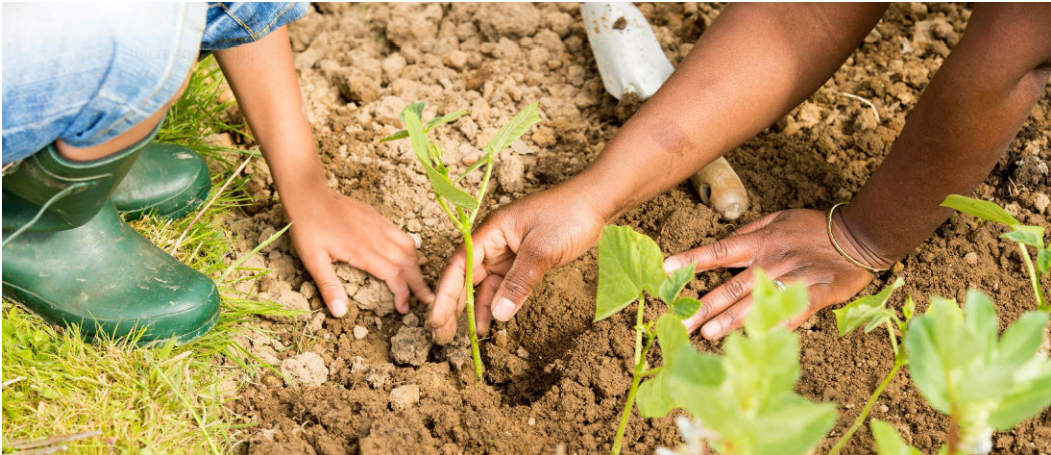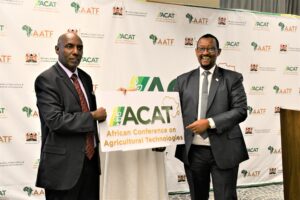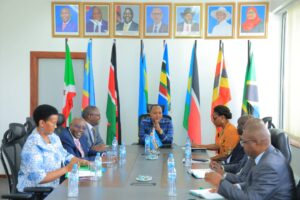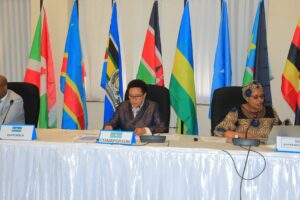
Digitalized agricultural ecosystems Will Feed Africa, Include Women and Youth
The promise of a digitalized agricultural sector
The intra-African trade in agricultural commodities has been on a downward spiral accounting for only 15% of all traded goods. Policy innovations have been at the forefront of unlocking the potential that the agricultural sector holds where the scale and scope of the revolutionary nature of agricultural digitalization cannot be understated. In a quest to boost agricultural trade, the African Continental Free Trade Agreement (AfCFTA) prioritizes value addition in the production and value addition process opening up opportunities for the adoption of digitalized processes and methods to enhance productivity.
The deployment of emerging technologies such as the Internet of Things (IoT), robotics, sensors, remote sensing, and big data analytics is pushing the frontiers of value addition in agricultural value chains. Information on soil moisture and plant nutrition requirements, detection of weeds, pests, and diseases, and precision harvesting is provided in real time. The transition towards a digitalized agricultural system holds promise to transform trade within the African Continent whilst enhancing food security. On the other hand, the use of these emerging technologies is marred with technical, social, and economic complexities which need careful navigation for sustainable and commercial viability.
Technical and economic constraints

Ownership, Control, and distribution of emerging technologies are driven by transnational corporations based in developed countries. Due to their dominance in technological know-how, infrastructure, and ownership of patents, they define the entire agricultural value chain from production to consumption. As capital investors, the return on investment is tailored to their needs making the distribution of this technology majorly favor resource-endowed actors.
Thus, new technologies impose legal, and or technological lock-ins that negatively affect African farmers. The lack of interoperability of data, for instance, makes it difficult to use or move to new platforms where farmers lack control over the technologies. Fertilizers and precision pesticides for instance impose technological lock-ins resulting in heavy reliance where Africa has been purchasing and consuming dubious amounts of fertilizers with horticultural farmers topping the list. By 2040, pesticide use is projected to increase by a factor of 1.2 to 2.3.
“African Governments should ensure harmonized and predictable policies across Africa, seamless cross-border logistics, and the facilitation of market information flow among African investors to boost intra-African investment in digitalized agricultural ecosystems.”
Consequently, small-scale farmers are normally left out of the technological transfer inclusivity strategies as the focus is on large-scale high-value crops. Small-scale farmers have to contend with the oligopoly power among lead firms and market access barriers. Market prices are controlled by these firms leading to uncompetitive market prices or even high prices for the consumer. The quality of produced goods is interfered with leading to reduced consumer choice and low consumer satisfaction.
A sustainable approach
For sustainability and commercial viability, there is a need for African governments to collaborate and engage the private sector to ensure the transition to bio-fertilizers for cost-effectiveness and ecological friendliness. The Africa Free Continental Trade Agreement (AfCFTA) Protocol on Investment provides mechanisms by which African governments can attract and promote investments in green sectors. The protocol governs investment in the green sector, facilitates technology transfer, develops green investment standards, and ensures regional cooperation. It provides a pathway in which African governments can develop strategies to boost agricultural production and thus trade.
The legal and regulatory framework governing investments in African countries should ensure investment initiatives are green and aligned with trade promotion strategies for host countries and communities through the imposition of investor obligations. African Governments should ensure harmonized and predictable policies across Africa, seamless cross-border logistics, and the facilitation of market information flow among African investors to boost intra-African investment in digitalized agricultural ecosystems.
A politically risk-averse investment environment for investors should be created for investors keen on investing in the green sectors, thus encouraging African investors. Moreover, room for public-private consultations should be necessary to ensure conversations for the avoidance of conflicts between investors and host countries to facilitate increased investment. This also requires the establishment of avenues and guidelines for dispute resolution and settlement to ensure efficient investor operations. With harmonized regulations, transaction costs for investors in finding, seizing, and exploiting investment opportunities can be further lowered to facilitate investment among African investors.
Women play a critical role in the agricultural sector as producers and consumers as they represent 50 % of the workforce and own a third (1/3) of the small and medium enterprises. However, they face hurdles such as biased land rights laws and traditions leading to their exclusion from agricultural governance issues. Agricultural digitalization will unleash the potential among women through equal market access and the transition from manual labor to digitalized systems hence increasing productivity. There’s a need to increase internet connectivity, scale up access to mobile technology, and improve digital literacy. Digital literacy among the youth further will entice them into agriculture increasing agricultural production. Public-private partnerships should be harnessed to realize the benefits of inclusion of women and youth in the agricultural sector. African governments should protect and ensure inclusive land rights laws and policies giving women and youth ownership and control rights.
An inclusive digitalization agricultural sector is transformative and offers immense hope for the enhancement of intra-African trade. Engagement of the private sector, and government, and the inclusion of small-scale farmers are critical for its success. Democratization of access and control of technology with transparent terms of use will enhance knowledge and decision-making for farmers creating a sense of ownership and sovereignty.
Bernice Kimani is a Lawyer. These are the writer’s own opinions and do not necessarily reflect the viewpoints of Liberty Sparks. Do you want to publish in this space? Contact our editors at info@libertysparks.org for further clarification.



